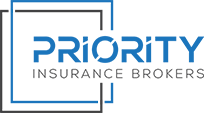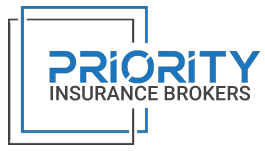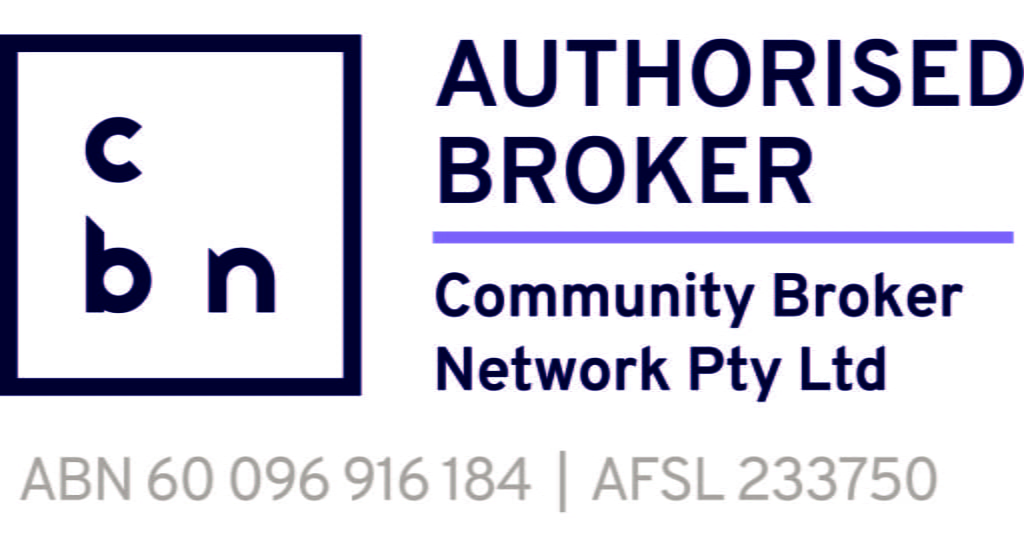The Cost of Liability Insurance for Small Businesses
Liability Insurance for Small Businesses is a vital shield, as accidents can occur across various business operations. Small business owners face potential liabilities that could result in costly legal battles and compensation claims. This is where the significance of Liability Insurance for Small Businesses becomes apparent, offering a safety net against these potential risks. Nonetheless, akin to any insurance, obtaining this protection comes at a cost, necessitating strategic financial planning by small business owners. This article delves into the key determinants impacting the cost of Liability Insurance for Small Businesses, provides insights on saving on insurance premiums, and underscores the paramount importance of securing the right coverage for your small business.
The Importance of Liability Insurance
Liability insurance is a type of insurance that protects small businesses from damages that may arise from third-party claims, such as a client or customer filing a lawsuit or an employee injuring themselves on company property. Unlike traditional insurance policies that only cover physical damages, liability insurance covers damages that result from non-tangible assets like intellectual property and reputation. Small businesses that provide professional services such as accounting, legal, or medical services require specialised liability insurance because these businesses can be held liable for their client’s losses.
Risks Small Businesses Face
Small businesses are exposed to several risks that can affect their operation. A lack of proper risk management can lead to lawsuits, loss of clients, and ultimately cripple a small business. The most common risks that small businesses encounter include property damage, personal injury, and professional liability. Property damage liability covers damages that arise from accidents or occurrences that occur while providing services to customers or clients. Personal injury liability covers lawsuits filed by individuals who sustain injuries while on company property. Professional liability covers lawsuits filed against small business professionals due to negligence or misconduct.
Navigating the Costs of Liability Insurance
The cost of liability insurance varies depending on the level of coverage required and the type of business. Factors that affect the cost of liability insurance include business size, industry, and location. Small businesses can mitigate the cost of liability insurance by shopping around for policies that meet their specific needs and by bundling policies. Bundling policies such as commercial property insurance and general liability insurance has been found to reduce the cost of liability insurance.
Types of Liability Insurance for Small Businesses
Professional Liability Insurance:
Professional liability insurance covers businesses providing professional services, such as architects, lawyers, doctors, and accountants. It’s also known as errors and omissions insurance. This type of insurance protects a business owner from legal claims that their services were inadequate or resulted in financial injury to the client. Professional liability insurance is particularly relevant for those offering professional advice or services as mistakes can happen, which could lead to costly legal consequences.
Product Liability Insurance:
Product liability insurance protects businesses that manufacture, distribute, or sell physical products from claims that may arise from defects in their products. This type of liability insurance is essential as businesses can be held liable if their products cause physical harm or injury to their customers. Product liability insurance covers the legal representation fees and the cost of any settlements or judgments against your business arising from product defects.
Employer’s Liability Insurance:
Employer’s liability insurance protects businesses from claims related to the injury, illness, or death of an employee while at work. It covers the legal expenses and any compensation payments your business may be obligated to pay in the event of such injury or illness claims. Employer’s liability insurance is mandatory in some countries, although the exact coverage required may vary.
Cyber Liability Insurance:
Considering the increasing amount of digital threats, cyber liability insurance is a crucial protection for all businesses. Cyber liability insurance covers the costs of your business’s recovery from a data breach or cyber-attack. It provides coverage for expenses like business interruption, customer notification, reputational damage, and cyber extortion. This type of insurance is particularly relevant for businesses that store sensitive client or customer data online.
General Cost Factors
1) Industry: One of the most significant factors that affect the cost of liability insurance is the type of industry your business operates in. For example, a manufacturing company would typically have a higher premium than a consulting firm due to the higher risk of accidents and injuries. Additionally, industries that require specialised knowledge or skills may need additional coverage beyond general liability insurance, making it more expensive.
2) Size of Business: The size of your business also impacts the cost of liability insurance. Generally, larger businesses have a higher risk and greater exposure to liability claims, which can increase the premium. Smaller businesses, on the other hand, may be able to obtain lower rates if they have fewer employees, low-risk products or services, and operate within a low-liability industry.
3) Location: The geographic location of your business also affects the cost of a liability insurance policy. Some states have more stringent laws and regulations than others, resulting in higher premiums. Additionally, areas with a higher crime rate may increase the risk of theft or other property damage, leading to a higher cost of coverage.
4) Claims History: Your business’s history of insurance claims can also impact the cost of liability insurance. Companies with a history of multiple claims and lawsuits may have higher premiums due to increased risk.
5) Coverage Limits: The amount of coverage you select will also impact the cost of liability insurance for your business. Higher limits of liability coverage will lead to higher premiums, as they provide more protection for your business.
How Size Impacts Cost

Insurance companies calculate your liability premium based on several factors. One of these factors is the size of your business. The size of your business can affect the risk of an accident or damage that could result in a claim. Small businesses with fewer employees and smaller premises are often seen as less risky than larger businesses with more employees and larger premises. The insurance carriers look into the annual revenue, number of employees, and the type of business you run. That said, smaller businesses tend to pay less in premiums than larger businesses.
Another factor that impacts the cost of liability insurance for small businesses is the industry they operate in. Some industries, like construction, are considered high risk due to the potential for property damage and workplace injuries. Other industries, like consulting, are considered low-risk and generally receive a lower premium. The type of work you do can impact your premium cost, so it is important to shop around to see who offers the best coverage for your business at a fair premium.
Liability insurance premiums are also influenced by the limitations and coverages included in your policy. A business can choose to purchase a standard plan that covers general liability and excludes additional coverage or endorsements. Or, they can choose a customised plan that suits their needs. The more coverage your business selects, the higher your premium may be. However, it is important to review your coverage to ensure you are adequately insured. Investing in the right policy can assist you in avoiding significant out-of-pocket expenses for legal fees or settlement amounts.
Small businesses may also benefit from seeking advice from an independent agent like an insurance broker. Insurance brokers work with several insurance carriers and can compare policies to get you the best coverage at the right price. They can likewise assist you in assessing your risks, managing costs and creating an insurance plan that meets your business’s unique requirements.
Industry-Specific Costs
The first thing you need to understand is that different industries have different risks associated with them. For example, if you own a construction company, your liability insurance costs will be higher than if you own a retail store. This is because construction is a high-risk industry with a higher likelihood of accidents and injuries. If you’re not sure how much your industry-specific insurance costs, it’s best to consult an insurance agent who specialises in your area.
Another factor that can affect your liability insurance costs is the size of your business. If you’re a small business owner with just a few employees, your costs will be lower than if you run a larger business with several employees. This is because larger businesses typically have more risks associated with them and therefore need more coverage. However, even with a small business, you can expect to pay more if you operate in a high-risk industry.
Your insurance history also plays a role in determining your liability insurance costs. If you’ve had multiple claims in the past, your premiums will be higher than if you have a clean history. This is because insurance companies see you as a higher risk and want to protect themselves from potential future claims. If you have a history of claims, it’s important to work with an insurance agent to find ways to lower your premiums.
Finally, the amount of coverage you need will also affect your insurance costs. The more coverage you need, the higher your premiums will be. However, it’s important to make sure you have sufficient coverage to protect your business. You don’t want to skimp on coverage and end up having to pay out of pocket for a claim.
Geographical Considerations
One of the biggest factors that can affect your liability insurance costs is local laws and regulations. Different states and even cities may have different regulations around liability, which can impact your premiums. For example, some states may have more lenient liability laws, which can lead to lower insurance costs. Additionally, if your business operates in a high-risk industry, such as construction or healthcare, you may be subject to specific regulations that increase your liability insurance costs.
Crime Rates
Another important factor to consider is the crime rate in your area. If your business is located in an area with high crime rates, such as a high-traffic urban area, your liability insurance costs may be higher. This is because the risk of theft or damage to your business is higher, leading to more claims and higher premiums. Be sure to research crime rates in your area and consider implementing additional security measures to reduce your risk and potentially lower your insurance costs.
Weather Patterns
Weather patterns can also impact your liability insurance costs, especially if you operate in an area with a high risk of natural disasters like hurricanes, floods, or earthquakes. In these cases, you may need additional coverage or higher policy limits to protect your business from potential losses. Additionally, if your business is located in an area with extreme weather conditions, like heavy snow or rain, your risk of liability may be higher if someone slips and falls on your property due to the weather.
Competition in the Area
Finally, it is also important to consider the level of competition in your area. If you operate in a highly competitive market, you may be more likely to face lawsuits from competitors trying to gain an edge. This can increase your liability insurance costs, as you may need higher policy limits or additional coverage to protect your business from these types of claims. Be sure to research your competition and take steps to reduce your risk of liability from competitor lawsuits.
Level of Coverage Required

The level of coverage impacts the cost of liability insurance. Generally, several factors influence the cost, such as the type of business, the size of the company and the level of risk. The more coverage you need, the higher the premium you have to pay. For example, if your small business involves hazardous or high-risk activities, such as construction, your insurance premium will be significantly higher than a consulting firm.
It is essential to understand the different levels of coverage to have a clear idea of what is best for your business. The most common coverage levels are $500,000, $1 million, and $2 million. The $500,000 coverage limit is the minimum requirement for most small businesses, whereas the $1 million and $2 million levels are suitable for businesses with higher risks, such as those involved in medical practices or manufacturing.
When deciding the level of coverage, it is essential to evaluate your business’s operations and the potential risks involved. Knowing the risks and exposures of your company will help in determining the appropriate policy limits and the cost of premiums. A general rule of thumb is that the higher the risk, the more coverage you need, and the more expensive the premium will be.
Another factor to consider is the deductible. The deductible is the amount that the policyholder is responsible for paying before the insurance coverage takes effect. If you opt for a higher deductible, it will typically result in a lower premium. However, this should come with caution since the cost of the deductible could be significant if the claim is substantial.
Premiums, Deductibles, and Limits
Premiums: A premium is a fee that you pay periodically – monthly, annually, or quarterly – to maintain your insurance policy. The cost of your premium generally depends on the type of insurance policy you have, the risks your business faces, and the amount of coverage that you want. As a general rule, the higher the coverage limit, the higher the premium. Similarly, if your business has a higher risk of liability claims, due to the services it provides or the industry sector, then your insurance premium will be higher as well.
Deductibles: A deductible is the amount you pay out of pocket for a claim before your insurance policy pays out. Deductibles are set by the insurance company, and they can either be a fixed dollar amount or a percentage of the total claim. Choosing a higher deductible can lower your premium, but it also increases your out-of-pocket expenses if there is a claim. So, when deciding on a deductible, it’s important to consider how much you are willing to pay if there is a claim.
Limits: Limits are the maximum amount your insurance policy will pay out for a claim. It’s important to determine your coverage limits during the insurance coverage selection process because if you have to pay for a claim that exceeds your coverage limit, you will need to pay the additional costs out of pocket. Higher limits offer greater protection, but they also come with higher premiums. It’s essential to evaluate your business needs and budget to choose the appropriate coverage level.
Choosing the right policy: There are various types of liability insurance, including general liability, professional liability, and product liability coverage. General liability insurance is a fundamental coverage policy that protects businesses against property damage or physical injuries they may cause to others. Professional liability coverage provides protection against claims that are a result of professional negligence. Product liability coverage protects against claims that arise from a product’s defects. Understanding your business’s specific needs is essential. A knowledgeable insurance broker can assist in evaluating which policy is best for your business.
How to Lower Costs
- Bundle your policies: Many insurance companies offer bundle packages that include property insurance, liability insurance, and other types of insurance that a small business might need. Choosing a bundle package can save you money on each policy. Make sure to ask your insurance provider about bundle options to see if they offer one that fits the needs of your small business.
- Increase your deductibles: Deductibles determine how much you pay before the insurance coverage begins. A higher deductible usually means lower insurance premiums. If your small business can afford higher deductibles, this can be an effective strategy to reduce your overall liability insurance cost.
- Implement risk management: Implementing risk management can help prevent accidents and incidents from happening in the first place. This can be done through staff training, implementing safety protocols, and more. Avoiding accidents and incidents can lead to a reduction in the number of claims, which can ultimately lower your liability insurance cost.
- Shop around for insurance providers: Don’t settle for one insurance provider without doing your research. Shopping around for different insurance providers can help compare rates and get the best deal possible. Make sure to consider the coverage provided and not just the price when shopping around as some cheaper policies may not provide enough coverage.
- Consider a higher insurance limit: A higher insurance limit can provide more coverage and protection in case of an incident or accident. However, this also means higher premiums. Determine if the cost of higher premiums matches the benefit of having more coverage.
Frequently Asked Questions
What insurance do I need for my business in Australia?
The type of insurance needed for businesses in Australia will vary based on the type and size of the business. Generally, most businesses should have public liability insurance to protect against claims from customers or members of the public. Businesses may also need additional covers such as property damage cover, employers’ liability insurance, legal assistance, professional indemnity and cyber security insurance. It is important to consider your business’s potential risks and assess the best insurance coverage to suit your needs.
What insurance does a self-employed gardener need?
The insurance needs of a self-employed gardener will depend on the specific services provided. Self-employed gardeners may need public liability insurance to protect against claims from customers or members of the public, as well as any property damage they may cause while carrying out their work.
When do you need public liability insurance?
Public liability insurance is essential for any business operating in Australia. It protects against claims from customers or members of the public who have suffered loss or injury as a result of negligence by the insured. This type of cover is particularly important if your business involves working with hazardous materials, such as chemicals, electricity and gas, or if you run events on premises owned by a third party.
Who needs public liability insurance?
Public liability insurance is essential for any business operating in Australia. It protects against claims from customers or members of the public who have suffered loss or injury as a result of negligence by the insured. This type of cover is particularly important if your business involves working with hazardous materials, such as chemicals, electricity and gas, or if you run events on premises owned by a third party.
Conclusion
Liability insurance is a vital part of any business operation, but small business owners should not let costs become a barrier to getting the right coverage. Understanding the factors that affect liability insurance costs is crucial in navigating the options available, and it can help business owners select the right coverage that ensures their business’s risks are mitigated. To reduce costs, consider purchasing liability insurance as part of a bundled Business Owner’s Policy, selecting higher deductibles, and limiting coverage to areas of greatest risk. With the right liability insurance, business owners can have peace of mind knowing that their business is adequately protected from risks associated with accidents.








